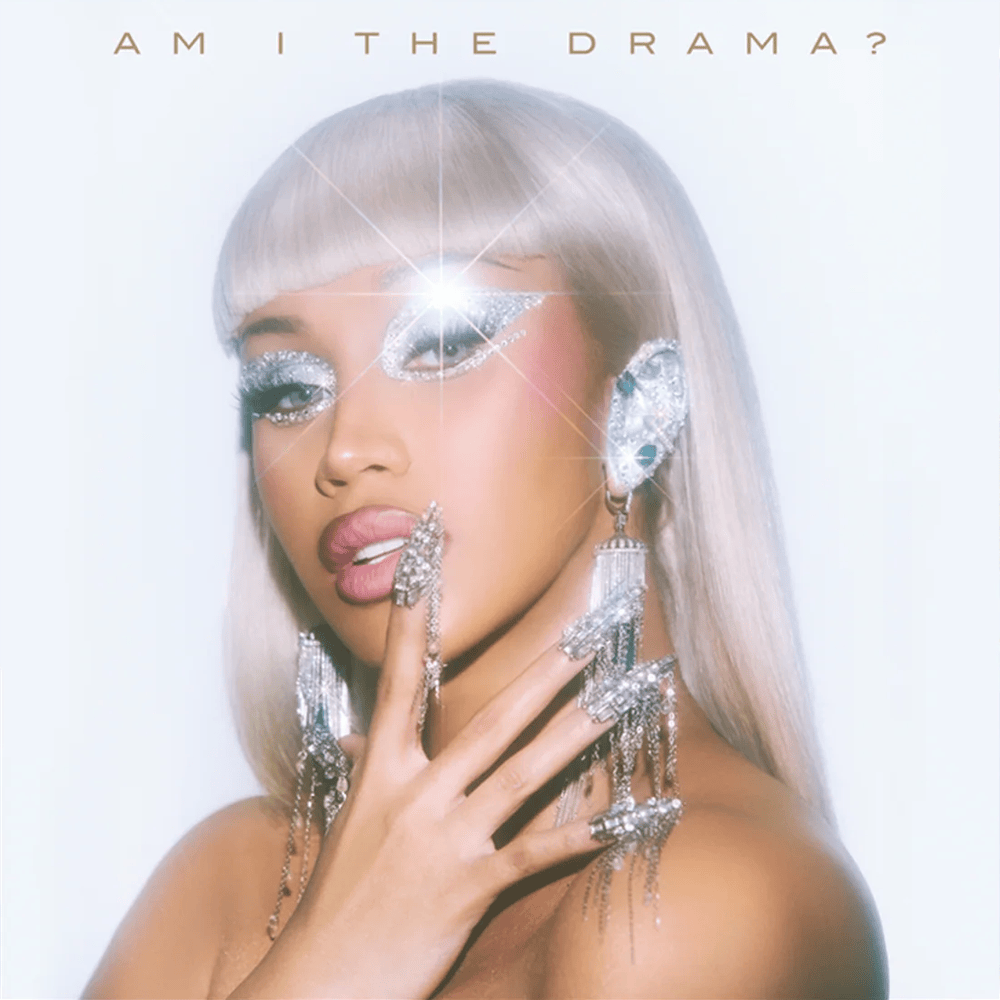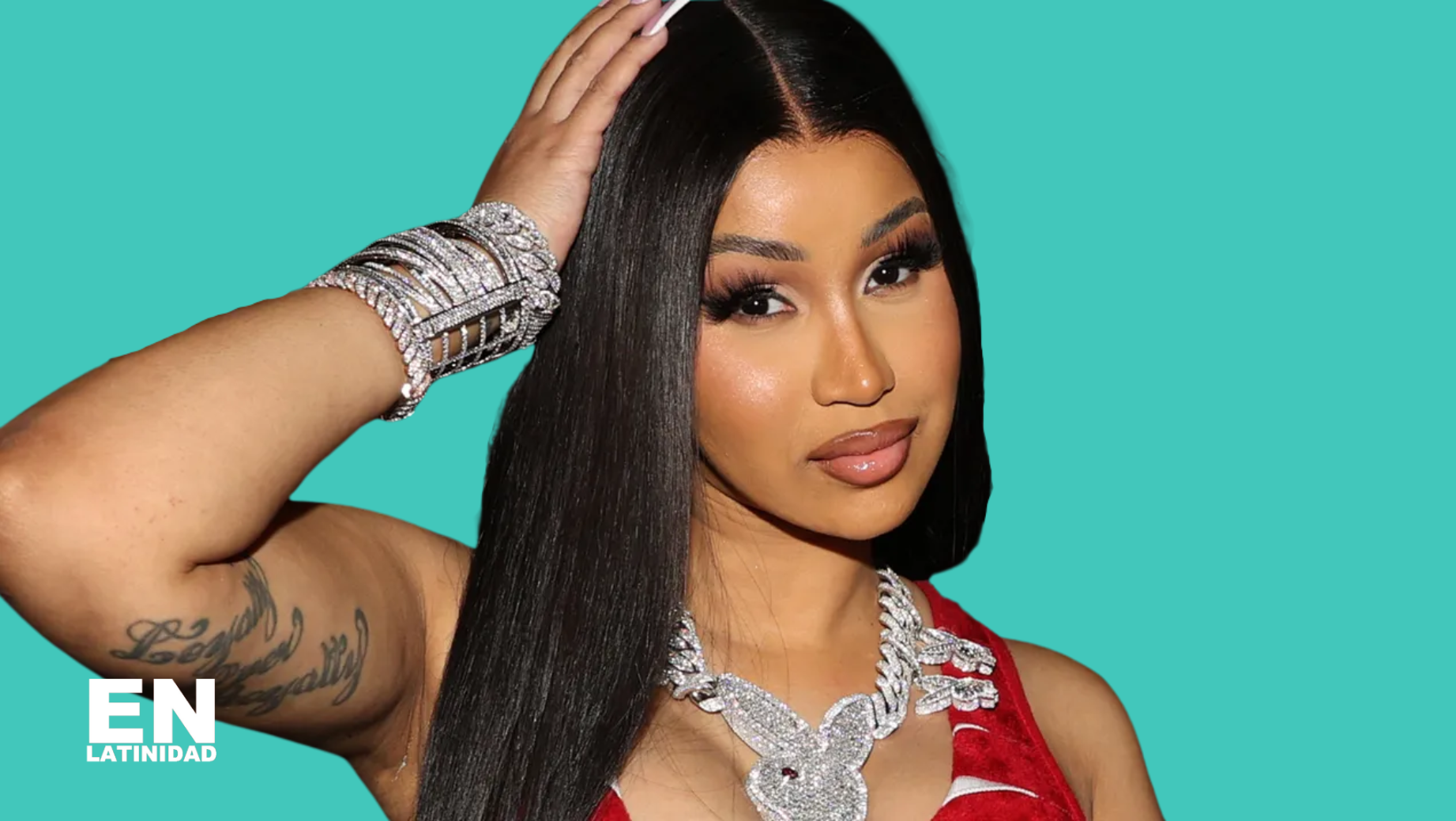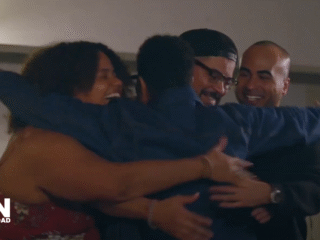Cardi B’s Cultural Reign: Bronx-Born Icon Redefining Rap, Politics, and Femme Power: Am I The Drama
It’s not often that a woman from the Bronx—born Belcalis Marlenis Almánzar, of Dominican and Trinidadian descent—goes from bagging groceries to bagging Grammys. But for Cardi B, that’s exactly what happened. After being fired from her job at a supermarket in Tribeca, her boss jokingly suggested she try stripping. Rather than feel defeated, Cardi made a power move. She took that advice, hit the club, and used it as a stepping stone—not a dead end.
And Seven Years After her Debut Album ‘Invasion of Privacy’, She Celebrates a new chapter with: ‘Am I The Drama?’ ft. Janet Jackson, Kehlani, Cash Cobain, Meg Thee Stallion, Lizzo, Selena Gomez, Summer Walker, Tyla, and Lourdiz.

From the jump, Cardi has defied every box the world tried to put her in. Her viral rise as an online stripper-turned-personality didn’t come with a curated PR strategy—it came with unfiltered Instagram rants, candid videos in her bathrobe, and a Bronx-bred wit that hit harder than most rappers’ punchlines. She became a beacon of authenticity in an era of digital façades. People loved her not because she was polished, but because she was real. She gave visibility to a class of women rarely respected in mainstream media—strippers, sex workers, immigrant daughters—and forced the world to listen.
Before the glitz of “Bodak Yellow,” Cardi gave us Gangsta Bitch Music Vol. 1 & 2, mixtapes that cemented her identity as a no-nonsense, bar-heavy MC with unapologetic sexuality and streetwise survival instincts. The Cardi I watched emerge from these early works wasn’t manufactured—she was a storyteller who brought humor and hood brilliance to every verse.
Her time on VH1’s Love & Hip Hop only deepened that narrative. Though the reality show is known more for messy storylines than meaningful representation, Cardi used her platform to call out misogyny in real time. Who could forget when she fearlessly checked Peter Gunz—a grown man exploiting women with zero remorse—during the reunion special? It wasn’t just reality TV drama; it was a feminist clapback wrapped in Cardi’s signature Bronx cadence. She held a mirror to the industry’s double standards, and somehow did it with a smirk and a perfectly timed, “You was the creep!”
That spirit is what’s made her such a force for femme audiences. Cardi doesn’t ask for permission. Her brand of feminism isn’t rooted in academia—it’s in lived experience. She flips the script on respectability politics. She’ll wear couture andcuss out a troll in the same breath. And while critics like to poke holes in her grammar or accent, her power lies in how she codeswitches between the streets and the Senate floor. Let’s not forget: Cardi studied political science and history while attending Borough of Manhattan Community College. She’s not just loud—she’s learned. That matters.
As Cardi climbed the charts, she never stopped repping where she came from. She put the Bronx back in rap’s spotlight, doing so with the flags of the Dominican Republic and Trinidad and Tobago wrapped around her waist. Her multiculturalism wasn’t an aesthetic; it was real, lived, and proudly claimed. We saw it in her music videos, in the Spanglish slang she weaves into interviews, and in her fierce defense of Caribbean culture in hip-hop.
Then came Invasion of Privacy—a debut album that wasn’t just commercially successful; it was history-making. Cardi became the first solo female rapper to win a Grammy for Best Rap Album since Lauryn Hill. That sentence alone carries a legacy. She wasn’t just the first in a while—she was a disruptor, rewriting what rap’s future could look and sound like.
Of course, no Cardi B narrative is complete without addressing the rap beef with Nicki Minaj. The two titans of the genre clashed in public, and the internet went wild. But beyond the tabloid fodder, the tension highlighted a bigger issue: the industry’s refusal to allow more than one woman to dominate at a time. Cardi didn’t fold. She stood her ground—and made it clear she wasn’t here to play nice just to be accepted.
What’s equally impressive is how she’s evolved into motherhood while balancing her career. Cardi has shown us what modern Black and Latina motherhood can look like: glamorous, loving, protective, and powerful. Her daughter Kulture is growing up seeing her mom unapologetically chase dreams, demand respect, and uplift others.
And now, after what feels like an 8-year wait (though technically Invasion of Privacy dropped in 2018), Cardi is finally set to return with her sophomore album this fall. We don’t know what to expect—but if her track record has shown us anything, it’s that she’s always one step ahead.
Cardi B isn’t just a rapper. She’s a cultural catalyst. She forces us to examine our own biases—about class, language, race, and womanhood. She is Dominican and Trini, Bronx and boujee, mother and mogul. She is a walking contradiction, and that’s what makes her beautiful.
As someone who has built a career analyzing Latinx and Black culture through reggaetón and beyond, I see in Cardi the blueprint for a new kind of icon. One that doesn’t play by the rules, but rewrites them with long nails and a mic in hand.
And with her next chapter just beginning, I—along with millions of others—can’t wait to see what she does next.





Leave a Reply
You must be logged in to post a comment.